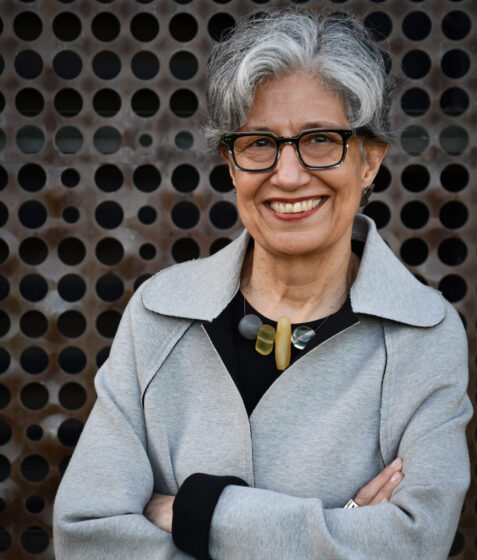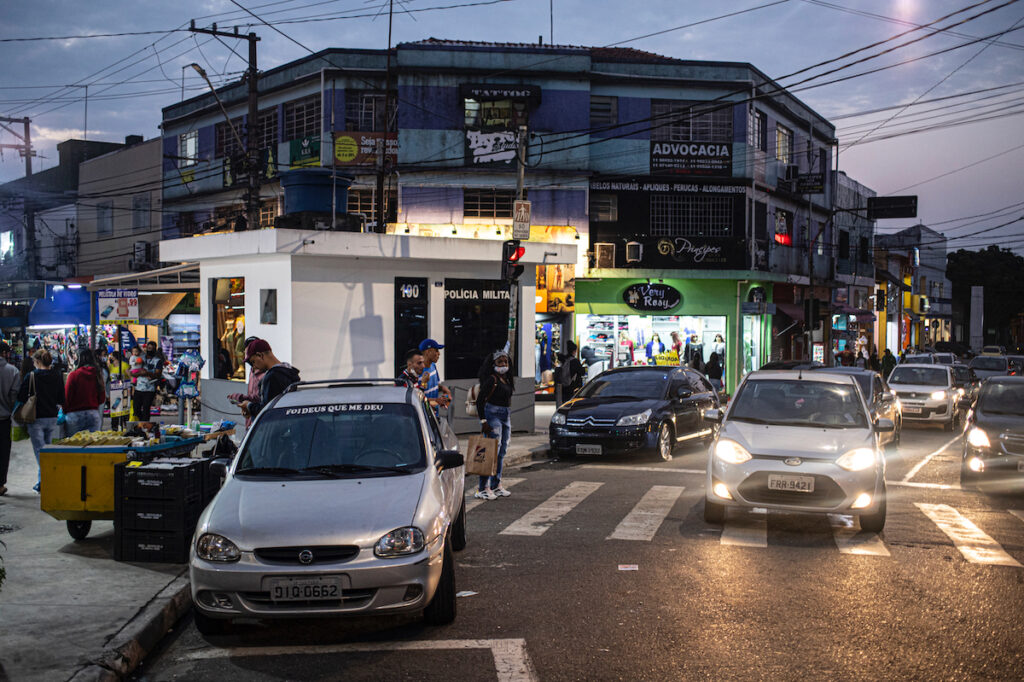Friesen Chair supports Teresa Caldeira’s work on new modes of collective life in the peripheries of São Paulo
Professor of City & Regional Planning Teresa Caldeira has been appointed to the Carmel P. Friesen Chair in Urban Studies for a five-year term. Endowed by a $1 million gift from Berkeley alums Carmel P. and Howard R. Friesen, and matched by the William and Flora Hewlett Foundation, the chair provides its holder with a scholarly allowance and funds to support graduate students.

“I am delighted to have been nominated for the Friesen Chair and honored that the department awarded it to me,” says Caldeira. A scholar of cities of the Global South, Caldeira received her PhD in anthropology from Berkeley and has been a full professor in the Department of City & Regional Planning since 2007. Previous honors include a Faculty Mentor Award from the Graduate Assembly and a Guggenheim Fellowship.
“The Friesen Chair supports my current historical and ethnographic study of the transformations of family structure, housing, and public space in São Paulo,” says Caldeira. The funds will support research assistants, Caldeira’s travel to Brazil, computer software, books, and other research materials.
“Professor Caldeira has served the department for many years with distinction, including a term as chair of the department. She is a highly cited and productive scholar with a distinguished scholarly record,” says Department Chair Dan Chatman. “She is also among the most important doctoral advisers and faculty mentors in the department.”
Caldeira has been working on resident-built neighborhoods on the peripheries of São Paulo since the late 1970s. This new project draws on her deep archive of research to chart the evolution of these districts.

“In the past five years, I noticed a transformation in the way people live together, how they constitute families and arrange their housing,” says Caldeira. “Using materials from my 40-plus years of working in these zones and ongoing fieldwork, we are now able to track these changes, which have been mostly triggered by a new generation of women.”
Caldeira has identified a new trend in family composition — 40 to 50% of mothers in these neighborhoods do not live with the fathers of their children. “Whereas previous generations of families built their own houses, a process we call autoconstruction, this generation of solo mothers rents spaces within houses that have been expanded. They don’t have the time or resources to construct their own housing.”
“We are in the middle of mapping the changes in domestic arrangements and compiling kinship charts. The idea that men are the main or sole providers of households has lost its dominance. We are observing changing ideas of masculinity and femininity associated with a shift away from the nuclear family as the primary form of household composition.”
Caldeira is especially grateful that the Friesen Chair allocates funds for PhD students in the department. Caldeira supervises 10 doctoral students working on processes of urban transformation in the Global South, from the creation of new towns in agrarian zones to new developments in housing, migration, governance, security, and violence in large cities in South Africa, India, China, and Latin America.
“I am privileged to work with an exceptional group of students and now to have the opportunity to provide resources that may help them to finish their research or write their dissertations,” says Caldeira.